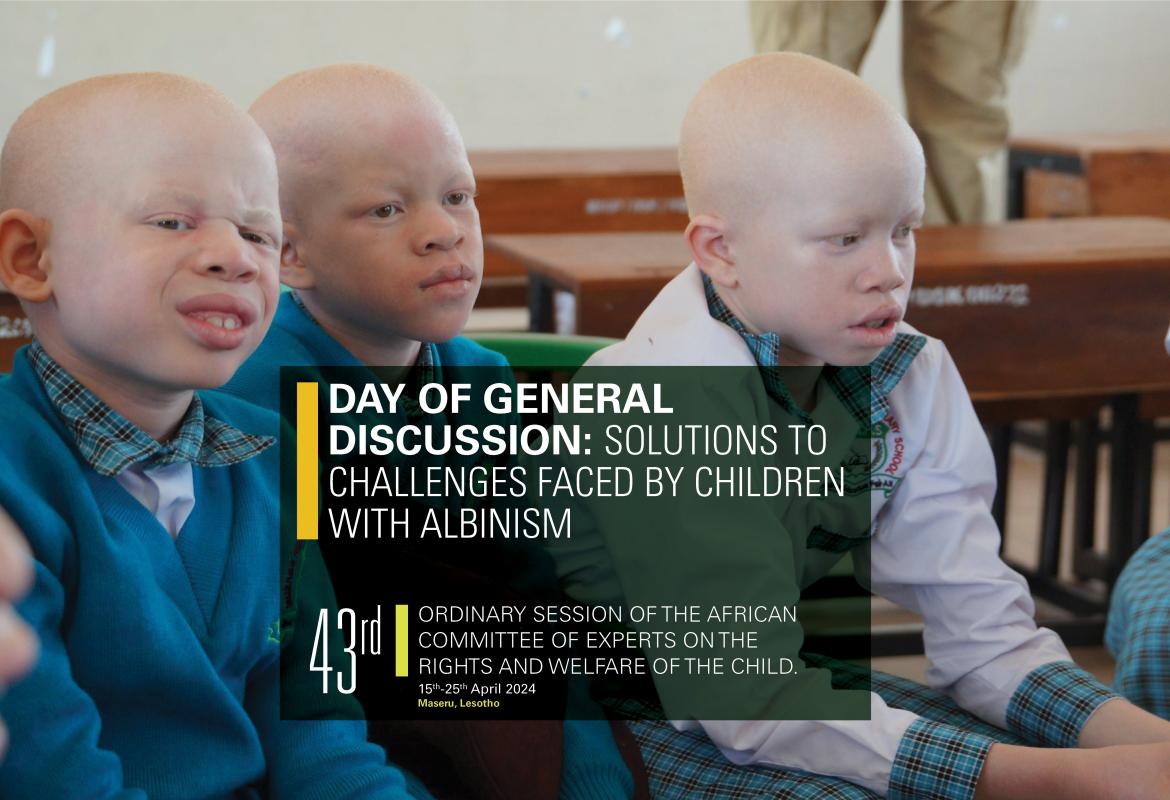BACKGROUND
The African Committee of Experts on the Rights and Welfare of the Child (ACERWC/the Committee) is cognizant of the challenges faced by children with albinism in Africa. Historically marginalized, persons with albinism, indeed including children with albinism, face significant human rights challenges, including entrenched stigma, discrimination, and violence, across various countries.1 The ACERWC notes specific provisions under the African Charter on the Rights and Welfare of the Child (ACRWC/the Charter) which provide protection from abuse for children with albinism, in particular, article 3 on non-discrimination; article 4 on the best interests of the child; article 5 on the right to survival and development; article 11 on the right to education; article 14 on the right to health; article 16 on protection against child abuse and torture and article 21 on the protection against harmful, social, and cultural practices. The Committee emphasizes the need for States Parties to fully implement these provisions of the ACRWC, ensuring that children with albinism are afforded the protections and opportunities they rightfully deserve, free from discrimination and harm, and supported in their development, health, and education.
OBJECTIVES OF THE DAY OF THE GENERAL DISCUSSION
The Day of the General Discussion is guided by the following main objectives:
- To facilitate experience sharing through discussion of lived experiences by children with albinism and assess the challenges faced by children with albinism;
- To examine the legal and institutional frameworks within African nations that are designed to protect children with albinism;
- To identify effective solutions that will enable the full enjoyment of the rights of children with albinism;
- To explore the role of State Parties in providing reasonable accommodations, assistive devices and support services, including aids for visual impairment and sunscreen, to safeguard the well-being of children with albinism;
- To discuss the role of stakeholders such as NHRIs, OPDs and other CSOs in addressing the challenges children with albinism continue to face;
- To raise awareness about the misconceptions and myths surrounding the condition of albinism that contribute to discrimination, stigma, and rights violations, fostering a more inclusive and understanding environment for children with albinism; and
- To discuss modalities in which children with albinism participate in the advocacy for their rights and decision-making processes in issues affecting them.
EXPECTED OUTCOME
Following the discussion, the ACERWC will consider adopting an outcome document to emphasize the key points raised and the proposed actionable measures to ensure the full enjoyment of the rights of children with albinism. The outcome document will be shared with Member States of the AU and key stakeholders, and the main findings of the discussions and the recommendations will be reported to the Policy Organs of the AU to foster enhanced political commitment across the continent.
DATE AND TIME
The Day of the General Discussion will be held during the 43rd Ordinary Session of the ACERWC on 17 April 2024 from 09:00 – 17:00 South African Standard Time.
Read More:







